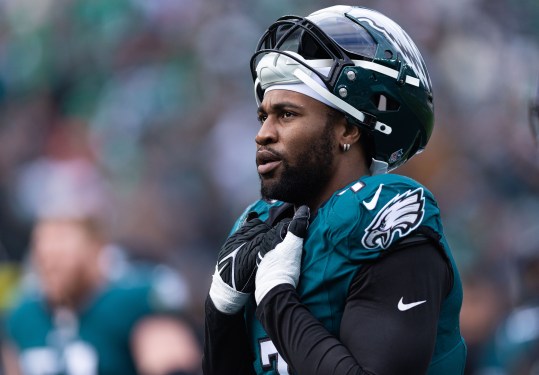Jets Trade Risk Backfires: Haason Reddick Faces Career Setback Amid Contract Dispute
The New York Jets find themselves at a crossroads this NFL season, grappling with numerous challenges, including the contentious situation surrounding defensive star Haason Reddick. With a record that doesn’t reflect the team’s aspirations, Reddick’s holdout has highlighted both his personal struggles and the team’s precarious position.
A Holdout That’s Costing Millions
Reddick, a former All-Pro pass rusher, has chosen to remain away from the team, leading to a holdout that has now stretched into the regular season. As a result, he has accumulated nearly $10 million in fines since his absence from mandatory minicamp in June. The financial toll has been significant, but it is not just the money that is at stake; Reddick’s future in the league is also hanging in the balance.
Recently, Reddick’s agency, CAA, severed ties with him amid a series of confusing negotiations that have ultimately damaged his standing as a two-time Pro Bowler. Now, without representation and deeper in financial trouble, Reddick is facing a career setback that few could have predicted when the Jets traded for him.
The Trade That Raised Eyebrows
In early April, the Jets traded a conditional 2026 third-round pick to the Philadelphia Eagles for Reddick, who was seeking a long-term contract. However, the details of their agreement remain murky, with conflicting narratives from both sides about the terms and expectations. While the Jets must take some responsibility for the inherent risks of not securing a new contract upon trade, they could not have foreseen the extent to which Reddick would derail his own career.
The organization likely operated under the belief that rational discussions would lead to a resolution. Unfortunately, this assumption has proven misguided. Reddick’s refusal to negotiate in good faith has left the Jets in a difficult situation, as they now face the consequences of his holdout.
The Cost of Misguided Principles
Reddick’s pursuit of a long-term contract that no team seems willing to offer has become a self-sabotaging endeavor. Each week he remains absent costs him an additional $900,000 in non-rescindable fines, further diminishing his market value. Instead of enhancing his position for a future payday, he is jeopardizing it, leaving him in a precarious situation without a clear exit strategy.
While it’s tempting to blame the Jets for the current state of affairs, general manager Joe Douglas has played his cards right concerning Reddick. The focus should shift to the player, whose overvaluation of his worth and refusal to compromise have resulted in this unprecedented situation.
Conclusion
As the Jets navigate the fallout from Reddick’s holdout, they must remain focused on the broader picture. This scenario serves as a reminder of the complexities of player negotiations and the unpredictable nature of professional sports. For Reddick, the path ahead is fraught with uncertainty, and the decisions he makes in the coming weeks will determine whether he can salvage his career or continue to spiral downward.




